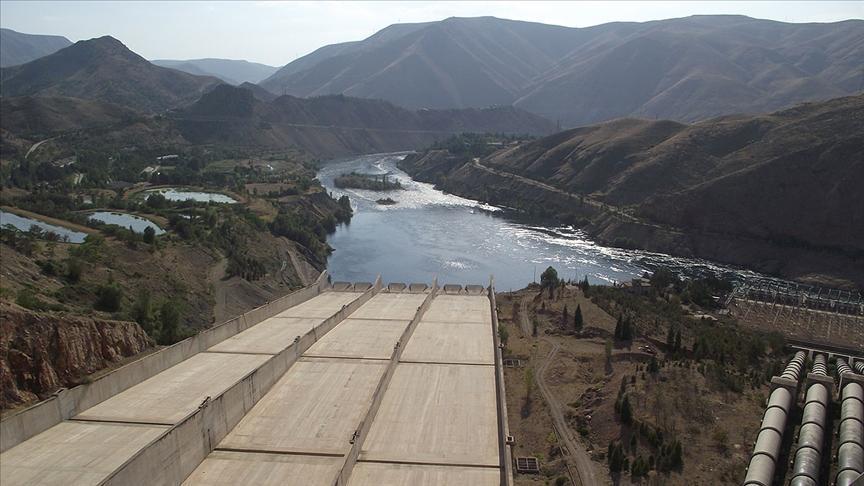
Hydropower plays a crucial role in Türkiye's energy supply security, according to Yusuf Günay, president of H2DER and founding president of Türkiye's Energy Market Regulatory Authority (EPDK).
However, Günay warned that the climate crisis is negatively affecting the efficiency and effectiveness of hydropower plants, posing significant risks to Türkiye's energy security.
Hydropower plants serve as baseload power stations, playing a crucial role in evaluating renewable energy capacity, he told state-run Anadolu Agency.
‘The more baseload power plants we have, the more we can expand our renewable energy capacity, he said.
“Droughts are already reducing water availability, leading to lower efficiency,” he said.
“Türkiye is among the countries most impacted by global warming in terms of water resources. Electricity production based on hydropower is, therefore, facing serious risks.”
Addressing the need for integrating renewable energy sources and improving water management strategies, Günay stressed the importance of prioritizing state-led inventory studies.
“Türkiye still has significant potential,” he said and added that if preparations are made based on accurate data to encourage investors, the country can reactivate its potential.
This process will increase Türkiye’s baseload capacity while also contributing to the development of wind and solar-based renewable energy plants, he underlined.
Global electricity demand is surging at an unprecedented pace, accelerating dependence on hydropower, according to the International Energy Agency's (IEA) latest sector report.
However, hydropower generation is threatened by drought, fluctuating water levels, and climate change.
Electricity demand worldwide is experiencing its fastest growth, with an expected increase of 3,500 terawatt-hours (TWh) between 2025 and 2027, the IEA's 'Electricity 2025' report said.
This growth is equivalent to Japan's total annual electricity consumption each year.
As the surge accelerates dependence on hydropower, climate-driven fluctuations are increasingly heightening energy security concerns.
Extreme weather is disrupting global hydropower production, while heat waves and heavy rainfall complicate reservoir management. Excess rain risks dam overflows, while droughts can halt generation entirely.
These factors threaten energy supply stability.
The report suggested that to stabilize energy supply and mitigate risks, solar and wind energy should be integrated with hydropower to create a more resilient energy mix.
Additionally, large-scale battery storage systems and pumped-storage hydropower plants could help balance electricity supply during periods of low water levels.